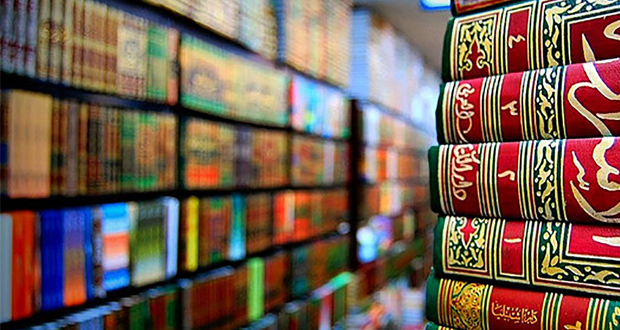If the end of a year is a time for stock taking, the end of a decade is time for reflection and to see which way history has been moving. If progress is defined as a qualitative change for the better, then we have seen advancement in science and technology, arts and aesthetics and trade and business. But in politics and statecraft, it seems the reverse has been happening with an occasional glimmer of hope dimmed by dark forces no sooner than it appears.
The decade that ends today is one of moral decadence. Nowhere is the decadence more prevalent than in governance, as we fool ourselves by calling our era an era of enlightenment where democracy, liberty, freedom and human rights have been given pride of place.
But which of the decades that preceded the one that ends today can be termed good? One cannot say when exactly the rot set in. Perhaps, it began with the beginning of the modern-state in the mid 18th century. Each decade that followed saw democracy blooming. But the irony was that it also saw politics being dominated by democratically-elected leaders who thought might was right rather than right was might. We should not single out Adolf Hitler because leaders of other western democracies were no better. They differed only in the degree of their madness or the greed — for power and other's wealth — that led to wars, colonization and the enslavement of the weak, the oppressed and the deprived. Their behaviour was in conflict with principles of democracy, the roots of which are justice, morality and service to the people. So they had to resort to deception that enabled them to continue with the politics of war, plunder and immorality while the gullible masses were given doses of democracy and lulled into a false sense of security.
The decade that is ending midnight today and the leaders who wrote its destiny are no different from those who shed the blood of the innocents in the decades past. With each passing year, the sophistication with which the neocolonialists pursued their immoral agenda of dominating the world and robbing its resources had only become more deceitful. Playing no small role in this game of deception where war is shown as peace, injustice as justice, and slavery as freedom are the embedded media. Their role today is giving life to lies. It is with the help of the media that Iraq was invaded, plans to attack Iran are being hatched and a capitalists' war for resources is being portrayed as a war on terror.
In comparison, the 1990s was a decade of hope, despite the conflicts and controversies associated with it. The 1990s saw the Soviets withdrawing from Afghanistan, the Soviet empire crumbling, the cold war disappearing along with many proxy wars that the two superpowers — the Soviet Union and the US — sustained in Asia, Africa and Latin America and the wind of democracy sweeping Eastern Europe after four decades of pseudo-communist rule.
The United States which emerged as the sole superpower was seen to be acting with responsibility in global affairs. The US punished Iraq for its invasion of Kuwait, but did not invade Iraq. It brokered the Dayton deal to end the war in Bosnia while it militarily intervened to end the greater Balkan war.
Moreover, the US not only signed the Kyoto Protocol, which many believed was an effective instrument to check the rising global temperatures and their adverse impact on the environment, but also agreed to ratify it.
Human rights regimes progressed in leaps and bounds with international law becoming so effective that leaders with blood on their hands avoided travelling abroad for fear of being arrested. The 1990s also saw the adoption of the Rome Statute that called for the setting up of an international criminal court to try war crimes.
PNAC
Alas, some felt that too much goodness was too bad for their countries — or for the capitalist agenda. The empire builders decided to break free from the short sojourn with moral politics and began to write the destiny of the decade that began in 2001 and ends midnight today.
These political immoralists — Dick Cheney, Donald Rumsfeld, Paul Wolfowitz, John Bolton and Richard Perle, among others — authored the Project for New American Century with the aim of establishing an American empire. The PNAC released in 2000 called for the setting up of permanent US military bases around the world, especially in Southern Europe, Southeast Asia and the Middle East and a self-assumed constabulary — or a street thug — role for the United States.
How they went about their empire building plan is no secret today. The terrorist attacks on the US on September 11, 2001 provided an ideal platform for them to implement measures recommended in the PNAC white paper. George W. Bush with his apocalyptic interpretation of Christianity as president and Cheney, the chief author of the PNAC, as his deputy seized the opportunity that 9/11 offered to invade Afghanistan first and, two years later, Iraq. The Bush cabal, which was ably assisted by Britain, Italy and similar rightwing European nations, claimed that Iraq possessed weapons of mass destruction and had links with the terrorists who attacked the US. Their lies were easy-sell to the panic-stricken American people, a majority of whom were guided not by their intellect but by their thirst for revenge.
So the people showed little or no remorse over the killing of hundreds of thousands of civilians in Afghanistan and Iraq by their forces. When puppet regimes in Iraq and Afghanistan were set up, the Americans believed their leaders' claim that democracy was being brought to the countries which had been ruled by dictators or mad mullahs. The proof that the American military was engaged in the torture of detainees did not shake their conscience. Neither did the detention without trial of terror suspects at the gulag-like prisons of Guantanamo Bay. Like truth, human rights and international law also became casualties of the so-called war on terror. Kyoto? They killed it.
The decade of decadence and deception moved on — with the US, apart from invading and occupying Afghanistan and Iraq, setting up bases in Central Asia, building a massive military complex in Guam, bolstering its military presence in Japan and South Korea, sending troops to the Philippines to join the war against the Muslim separatists and beating the war drums for a possible attack on Iran.
Enter Obama
The entry of Barack Obama in 2009 did not change things much. Campaigning for office on an anti-war platform, he stirred hopes, but soon he sat in the driver's seat to steer the war that Bush had begun. Obama, in fact, went one step further. He took the war to Pakistan where more than 1000 civilians died this year in US drone attacks. While civilians in Pakistan and Afghanistan bear the brunt of the war on terror, al-Qaeda leader Osama bin Laden is still at large and his Taliban hosts are growing stronger and, at times, they are even seen to be winning the war.
True, under a deal worked out by Obama's predecessor, US troops in Iraq ended combat operations keeping with an August 2010 deadline. But Iraq remains a military state with 50,000 American soldiers being stationed there for contingencies while the elected government is dictated to by Washington.
Obama talked big about peace in West Asia. But as the decade ends, Palestine still remains occupied. Moreover, it is shrinking with Israel annexing more and more Palestinian land while Obama looks on or looks the other way.
The unexpected
As the war on terror began at the start of this decade, the US probably would not have thought that there would be any power on earth that could hinder its progress. But as the decade ends, China has risen as a superpower in both the military and the economic sense of the word to pose a challenge to the US' global agenda.
Containing China, like containing the Soviet Union during the cold war era, is pivotal to the US defence policy. Seen in this context, the current tension in the Korean peninsula is said to be stage-managed not only to force North Korea to give up its nuclear ambitions but also to throttle China.
The American empire builders would not have foreseen Russia's return to the big-power scene. They certainly did not stomach the manner in which Russia punished Georgia in 2008 and got the US to abandon its plan to set up missile defence systems in Russia's backyard this year.
Dealing as devastating a blow to the US as the rise of China and Russia was the financial crisis that began in 2008, worsened in 2009 and persisted in one form or another this year.
Giving a fitting finale to the decade of decadence is the exposure made in the WikiLeaks website. Thousands of leaked US diplomatic cables only confirm the deception with which world affairs are conducted by the so-called champions of democracy and human rights.
(The second part of this article will appear next week)
Post Disclaimer | Support Us
Support Us
The sailanmuslim.com web site entirely supported by individual donors and well wishers. If you regularly visit this site and wish to show your appreciation, or if you wish to see further development of sailanmuslim.com, please donate us
IMPORTANT : All content hosted on sailanmuslim.com is solely for non-commercial purposes and with the permission of original copyright holders. Any other use of the hosted content, such as for financial gain, requires express approval from the copyright owners.
 Sri lanka Muslims Web Portal Sri Lanka Muslims News Center
Sri lanka Muslims Web Portal Sri Lanka Muslims News Center
 Donate
Donate


